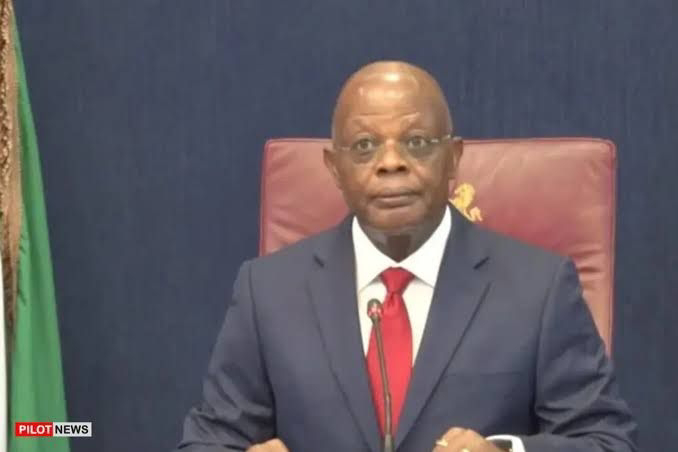By: Ovieomeleh
ABUJA – In what may go down as one of the most decisive acts of legislative vigilance in recent history, the Nigerian Senate has sounded the alarm, and the promise of unprecedented scrutiny over the implementation of Rivers State’s 2025 budget.
Amid growing national concerns about fiscal accountability, the Red Chamber has drawn a clear line: every naira disbursed must be accounted for, with no room for missteps or misuse.
The declaration came during a charged budget defense session at the National Assembly in Abuja, where Senator Opeyemi Bamidele, Chair of the Senate Ad hoc Committee on Oversight of the Rivers Emergency, delivered a thunderous message of intent. “It is our mandate to track how allocated resources are utilised, project by project, sector by sector,” he announced, his tone a potent mix of resolve and warning.
“We are not here to rubber-stamp figures,” Bamidele continued. “We are here to ensure that budget implementation is not reduced to a bureaucratic ritual but becomes a vehicle for real transformation.
We will follow the money. We will track the promises.”
Rivers State has found itself under a magnifying glass since a political crisis late last year led to the federal appointment of retired Admiral Ibok-Ete Ibas as Sole Administrator.
The move, which bypassed traditional democratic structures, triggered national debate over the constitutionality of such an action and intensified scrutiny on the state’s governance and fiscal direction.
With this backdrop of administrative controversy and public skepticism, the 2025 budget is pegged at ₦1.8 trillion, with a record ₦1.72 trillion (72.43%) allocated to capital projects; represents both a promise of progress and a potential powder keg of public expectation.
Presenting the budget before the Senate, Admiral Ibas framed it as a forward looking strategy rooted in the Rivers State Development Plan (2017–2027).
“This budget is designed to address immediate challenges while positioning the state for long-term resilience and prosperity,” he said. Key areas of focus include infrastructure renewal, healthcare access, education reform, and economic empowerment.
However, the Senate is not taking the plan at face value.
Bamidele made it clear that this level of fiscal investment demands commensurate outcomes that are visible, measurable, and transformative.
“This is how we restore trust in governance,” he said. “If we cannot guarantee that public funds deliver public good, we lose the very legitimacy of government.”
The committee has committed to going beyond the perfunctory budget defense sessions that have, in the past, marked the end of legislative interest in state expenditure. Instead, what is emerging is a model of active, ongoing oversight, complete with field assessments, audit tracking, and sectoral reviews.
Legislators are expected to engage stakeholders at all levels, from contractors to community leaders, in ensuring that budgeted projects are not just started but completed—and that they serve the people as promised.
Rivers State now finds itself not just at the center of development hopes, but also as a litmus test for a new wave of accountability in Nigeria’s democratic evolution.
With billions on the table and the eyes of the nation watching, the success or failure of this oversight mission could redefine how state budgets are executed, monitored, and judged.
Whether this initiative becomes a model of fiscal excellence or another missed opportunity will depend not only on the sincerity of the Rivers government, but also on the consistency and courage of the Senate’s watchdog role.
One thing is clear: the battle for transparency has begun, and it promises to be unrelenting.



.jpg)









0 Comments